Introduction
- A stereotype is a common or popular belief about certain people or behaviors of certain individuals.
- The stereotype may also be biased.
A stereotype is a common or popular belief about certain people or behaviors of certain individuals. People from different cultures have different stereotypes. Stereotype can also be biased at times (Bowdin 6).
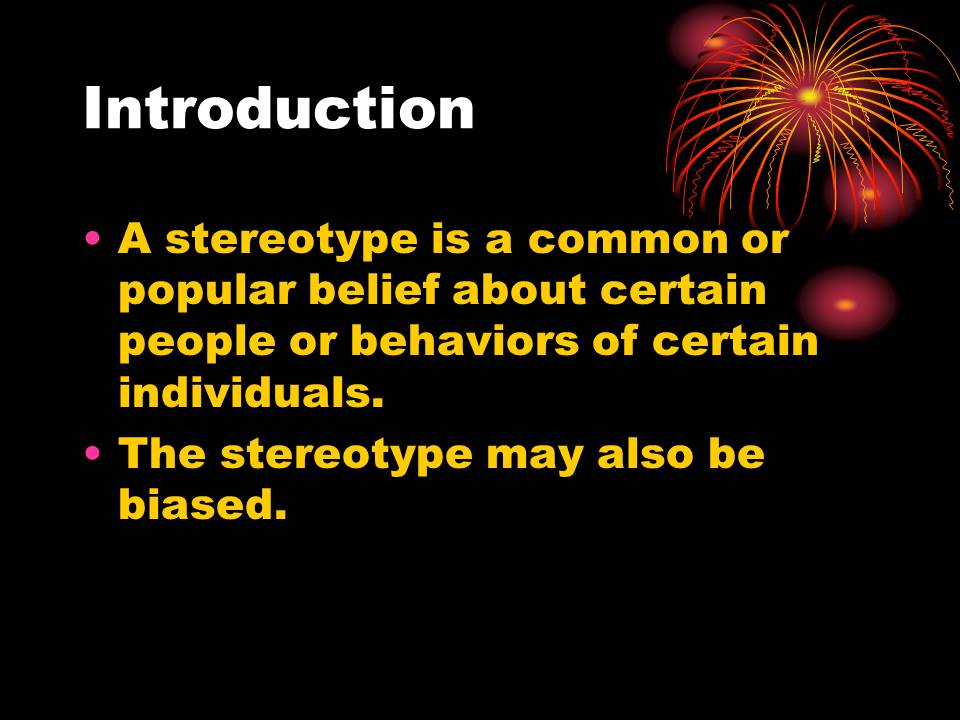
Stereotypes in UK
- United Kingdom is comprised of people with different cultural backgrounds.
- Large cities and towns in the UK are multicultural.
- There are certain stereotypes associated with UK culture.
- Some stereotypes are true while others are false.
United Kingdom comprises of people from different cultures. This has led to the adoption of certain stereotypes that does not apply to the entire population living in the United Kingdom. Most cities and towns are multicultural in the UK, especially large ones (McCarthy 16).
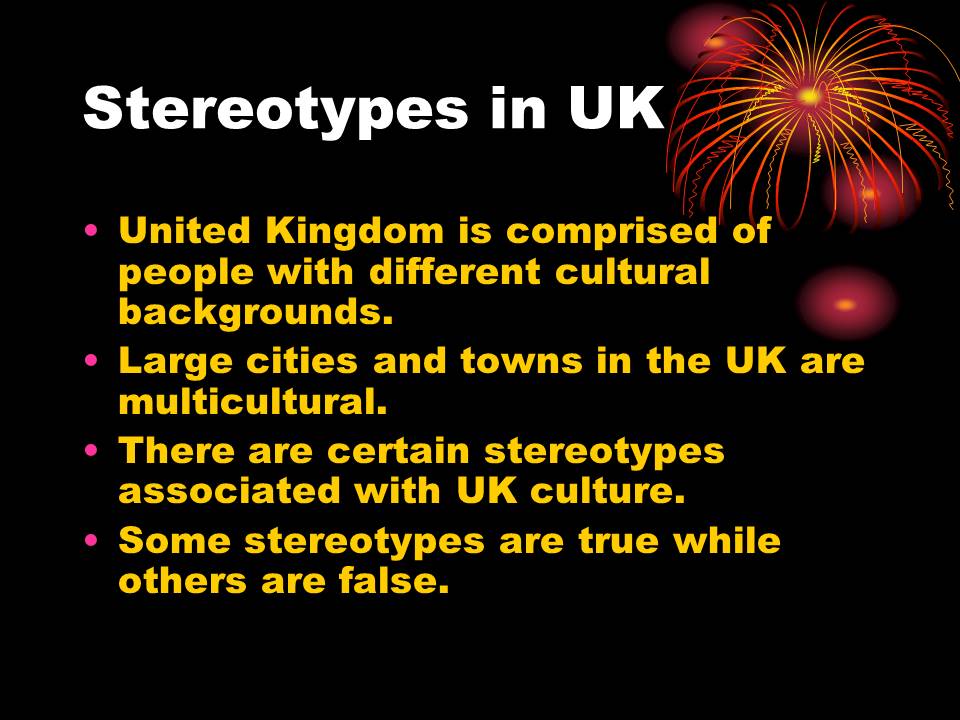
Food and drink
- There are several stereotypes about food consumption in the UK.
- People in the UK mostly live on roast beef, chips and fish in their arteries.
- UK people like drinking a lot of tea.
There are different stereotype about food and people living in the United Kingdom. It is believed that people living in the UK love meals comprised of roasted beef, chips and fish. This is due to their arteries (McCarthy 36). However, these meals are basically taken on weekends by most people living in the UK. Furthermore, these are the most common meals in the UK. Secondly, it is also believed that people in the UK mainly drink tea while coffee is also taken in the UK. Tea is mainly preferred in offices in the UK (Brown 38).
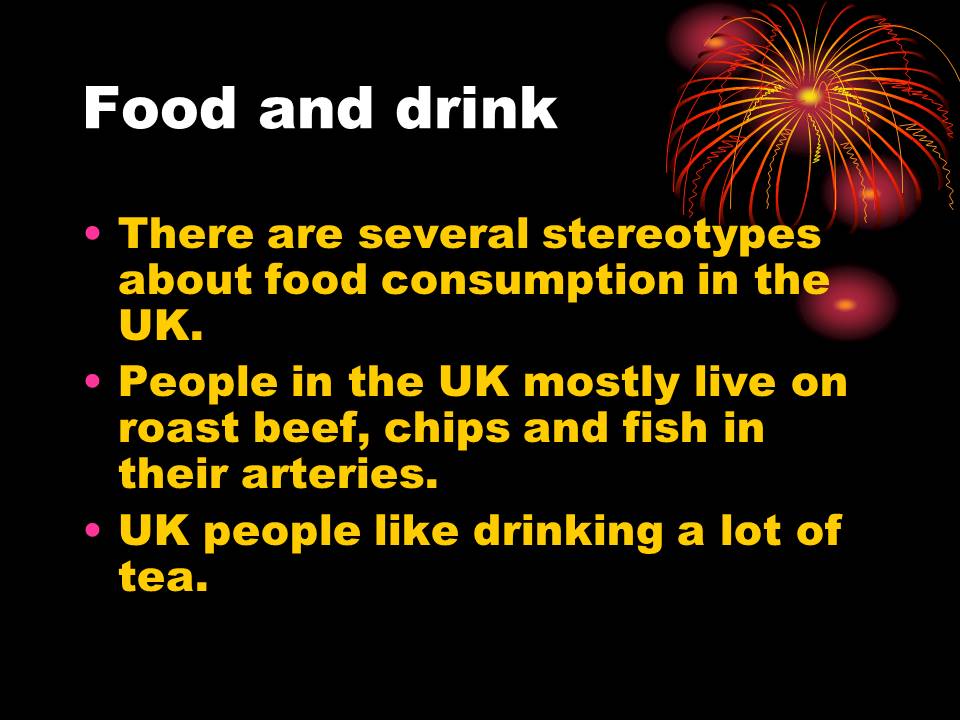
Social customs
- People living in the UK are quite traditional and polite.
- UK people like queuing in public places or events.
- UK people speak the Queens English.
- People in the UK are humorous.
People living in the UK are traditional and polite. This is because most people living in the UK prefer using polite words such as “please” among others while addressing each other. They also like queuing in public and people who do not queue may be requested to wait at the back of the last person in the queue (Jeffries 24). It is also believed that most people in the UK speak the Queens English, which is not true because it is comprised of people from different countries such as Wales among others. Finally, people living in the UK also like humors such as comedy among others (Goldblatt 48).
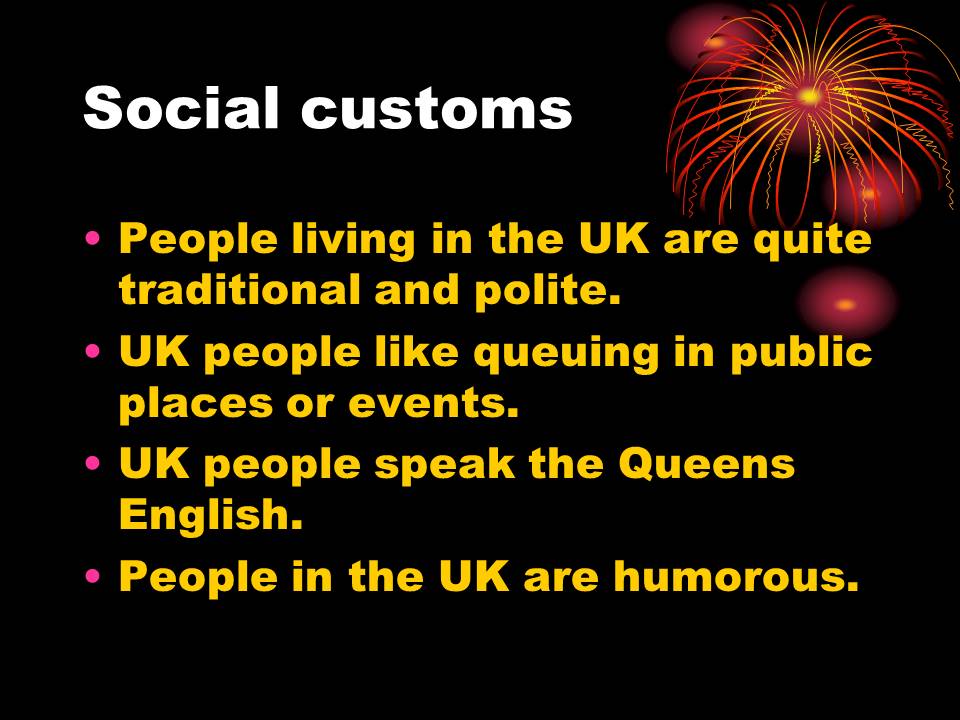
Free time
- People in the UK like consuming a lot of alcohol during free time.
- People in the UK love watching football and cricket during free time.
- Generally people in the UK love attending sporting events during free time.
People in the UK spend most of their free time drinking alcohol. This is in contrast to other European cultures where alcohol is taken during meals (McCarthy 36). Furthermore, people living in the UK love watching sporting events during their free time. The most popular sport is football. This is because the UK has one of the most competitive and loved football leagues in the world. It is therefore hard to find a person without a football team that he or she supports in the UK (Jeffries 52).
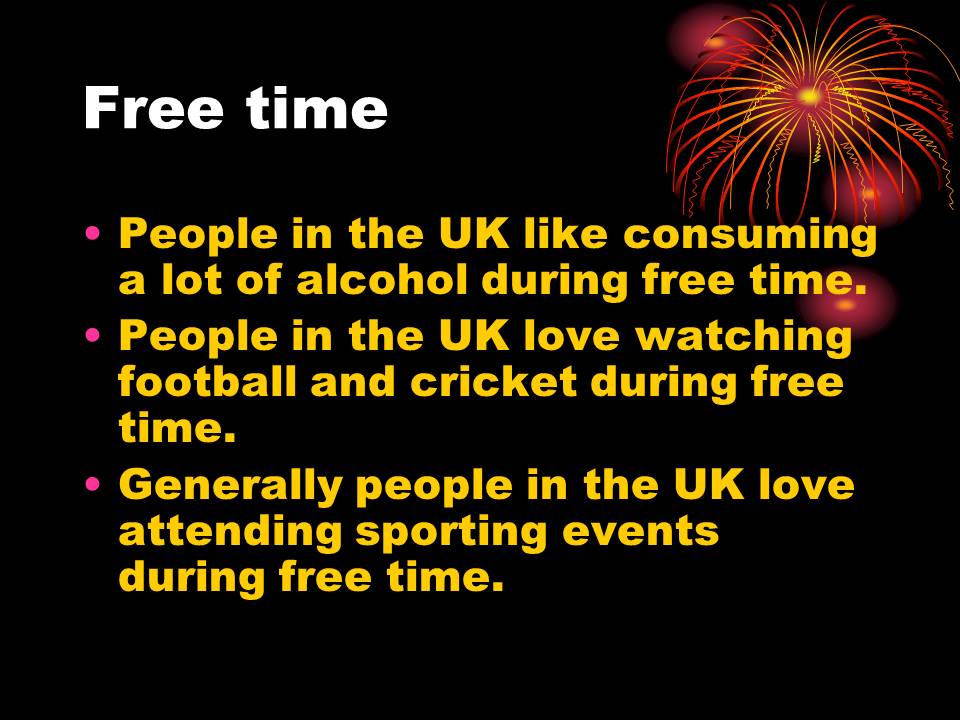
Conclusion
- People from different cultures have different stereotypes.
- Stereotypes about certain people may be true or false.
- Stereotypes about people from the UK may be true or false.
People from different places have different stereotypes. Stereotypes may be true or false. There are different people from different cultures living in the United Kingdom. Therefore, stereotypes about people living in the United Kingdom may be true or false because it might be associated with a few people or the entire population.
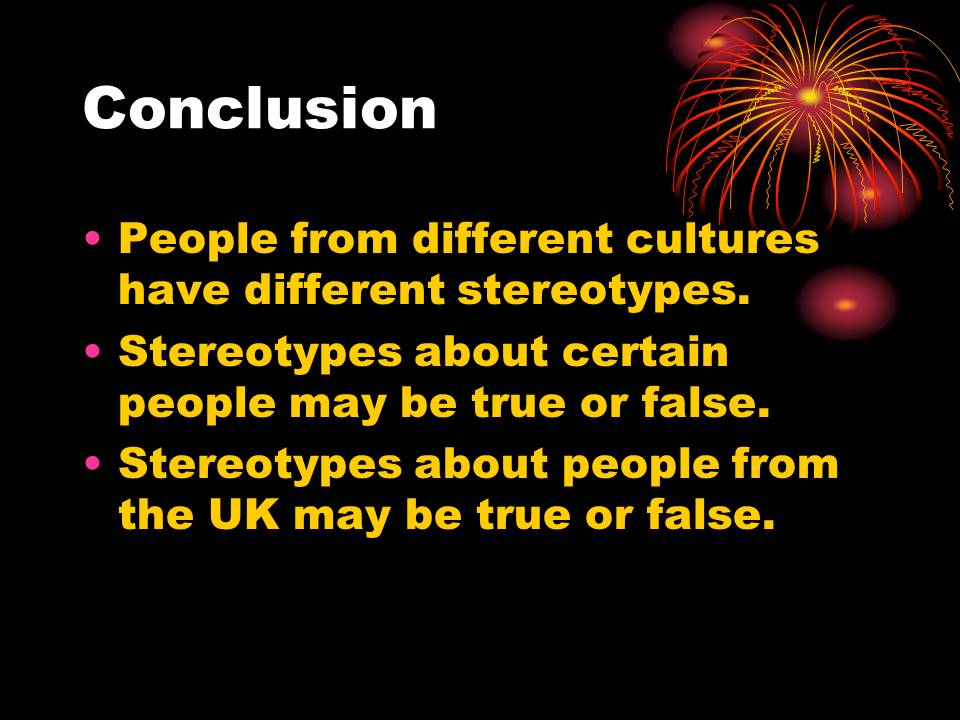
Works Cited
Bowdin, Glenn. “Introduction to Stereotype.” New York: Springer, 2009. Print.
Brown, Arnold. “Stereotypes: Definition and explanations.” U.S.A: World Future Society, 2011. Print.
Goldblatt, Joe. “Stereotyping in the United Kingdom.” Cambridge: Cambridge UP, 2010. Print.
Jeffries, David. “Stereotypes in UK.” Cambridge: Cambridge UP, 2009. Print.
McCarthy, Petrov. “Stereotype in the United Kingdom.” U.S.A: World Future Society, 2012. Print.